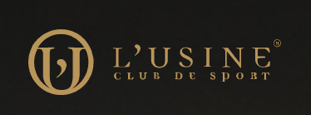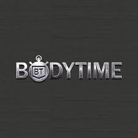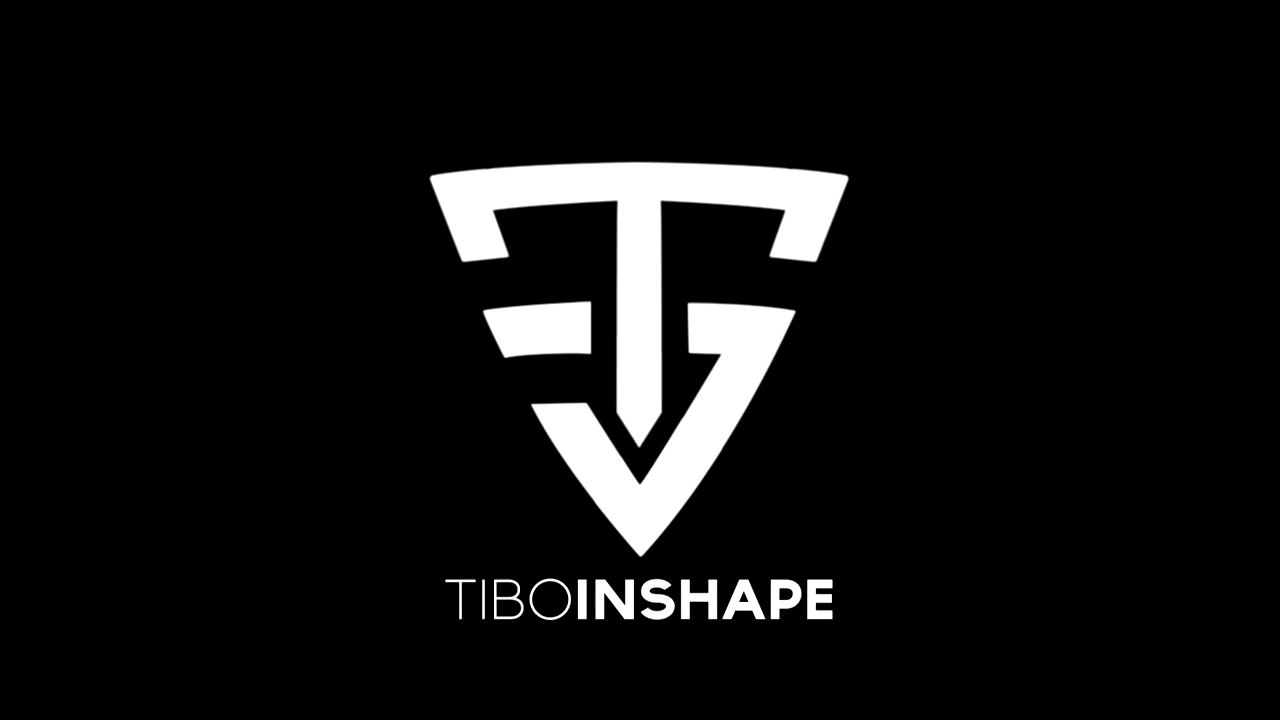Summary
The sports coaching market in Europe has seen a decline due to the impact of the COVID-19 health crisis, with the fitness market declining by 11.4% in 2021 to €17.10 billion from €28.80 billion. Nevertheless, a sense of optimism persists due to people's growing recognition of the importance of physical health. The French market is aligned with this trend, expecting gradual growth, and the number of sports coaches is forecast at between 25,000 and 30,000. Despite a general increase in sports participation across genders and ages, with women leading the growth, sports clubs are unevenly distributed across France, with the most populous regions home to the greatest number.
Financial transactions in the sector picked up again after the pandemic, marked by acquisitions such as that of Neoness by Keep Cool. Sports coaching has seen a trend towards diversification and personalization with the rise of digital platforms, and many coaches are now self-employed, underlining the importance of accreditation and qualifications in this field. Prices for personal coaching sessions range from 25 to 150 euros per hour, with the average rate being around 60 euros before tax reduction.
In summary, the European sports coaching market is recovering from the setbacks of COVID, with digital trends and female participation shaping the future landscape, with variable pricing and an emphasis on professional qualifications.
The growing popularity of sports coaching in France: Trends and key figures
Sports coaching in France experienced remarkable growth in the early 21st century, becoming a service accessible to a wider population than the affluent. The French market shows a steady trend towards increased physical activity, with a notable awareness of the importance of maintaining physical health. This change in attitude has been a boon for the sports coaching market, which had grown considerably prior to the COVID-19 pandemic. Despite the severe economic impact of the pandemic on the sports market, a resurgence is expected, fuelled by increased health awareness.
The European fitness market, a relevant indicator for sports coaching, has suffered an 11.4% decline in 2021, falling to revenues of between 15 and 20 billion euros, a stark contrast to the nearly 30 billion euros previously. However, recent figures still reflect a continuing interest in fitness, despite the challenges faced due to the health crisis. For example, the French fitness market grew by 3% before the Covid-19 crisis, reaching a value of over 2.5 billion euros. Although current figures are still poorly known, the steady growth in previous years suggests a positive outlook for the post-pandemic market.
The number of sports clubs in the major European countries has remained stable. This stability suggests that the basic infrastructure for sports and fitness activities is unaffected, which could facilitate recovery from the crisis. In terms of consumption habits, around 35% of the French population took part in fitness-related activities, a figure that is generally on the rise. The increase in physical activity between 2010 and 2022 is significant, rising from 54% to 70% of the population. This widespread interest in staying fit and active is further underlined by the 16% of French people who use the services of a personal trainer.
In France, household spending on sport is rising steadily, mainly due to an increase in the volume of sports goods and services. On average, it is estimated that French households will spend around 400 euros a year on sports goods and services. INJEP reports a stable rate of physical activity and sport among the French, even in times of health crisis. However, there has been a noticeable shift towards home sports, which increased during the pandemic and continues to show an upward trend.
Key players in today's sports coaching market
The sports coaching market, a complex network of personal development and athletic training, is booming, driven by changing demands and technological advances in the way coaching services are delivered. In this evolving landscape, several market players stand out, each carving out a unique place in the industry.
Matchmaking platforms for personalized training
- TrainMe: An exemplary model of a sports coaching matchmaking platform, TrainMe connects customers with certified coaches for a range of activities. Its approach is to meet the demand for flexible, high-quality options in physical activity and wellness, helping customers easily find the right person to meet their personal fitness needs.
- aBC Coaching Sportif: ABC Coaching Sportif follows a similar model to TrainMe but differentiates itself by focusing on the alignment between the customer's goals and the trainer's specialties, understanding that the right coupling is paramount to success in personal and athletic development.
Innovators in digital training experiences
- FizzUp: At the forefront of remote coaching applications, FizzUp brings a digital dimension to the sports coaching market. Promising convenience and a personalized touch, FizzUp harnesses AI and performance-tracking technology to revolutionize home fitness routines and cater to its users' modern, busy lifestyles.
- Freeletics: Echoing a similar ethos, Freeletics also operates in the digital space, offering personalized fitness training via its app. With a focus on high-intensity workouts that can be performed anywhere, Freeletics has found its place among those looking for an effective on-the-go fitness solution.
Fitness giants: Cultivating a community of well-being
- Basic Fit: A heavyweight in the gym sector, Basic Fit stands out for its sprawling network of affordable fitness centers. It appeals to those who value community and the traditional gym experience, but are conscious of the cost associated with maintaining an active lifestyle.
- Neoness: Neoness brings a new perspective to the gym experience, combining affordability and quality. Its acquisition by Keep Cool testifies to the rise of value-driven fitness clubs, which are determined to transform the way in which gym services are perceived and received by the general public. Each of these entities, whether digital disruptors or gym network giants, plays a crucial role in the evolution of the sports coaching market. They represent the very essence of modern fitness trends: variety, accessibility, personalization and digitization.
to understand this market
Detailed content
 Inforamtion
Inforamtion
- Number of pages : 30 pages
- Format : Digital and PDF versions
- Last update : 22/07/2022
 Summary and extracts
Summary and extracts
1 Market overview
1.1 Introduction and market definition
Coaching involves personalized support aimed at helping the client achieve a goal. Coaches are available in a variety of fields, including personal development, professional development and sport. In the latter case, the coach generally works in a gym or at home, whether as a salaried employee or self-employed.
A sports coach can work not only as a self-employed entrepreneur, but also in gyms, associations, professional sports clubs and even health establishments such as EHPAD. This study also looks at the role of gyms and sports clubs. Fitness plays an important role here, as sports coaching, as it is perceived today, consists of helping customers to get back into shape through the implementation of adapted exercises.
The European sports coaching market is booming, with growth set to reach 3% in 2019. Markets are strongest in this part of the world, as well as in North America and Oceania, due to relatively high per capita incomes and greater awareness of the link between health and sporting activity. The French market is also on a positive trend, with growth of 1% in 2019.
As the sports market was hugely impacted by the Covid period, it is difficult to draw up a recent assessment, as post-Covid data are not available. We do know, however, that the market experienced a real brake during this period and suffered heavy economic losses. There is, however, reason for hope, thanks to the growing awareness among many French people of the importance of maintaining their bodies physically. This trend will enable the market to cope with greater demand than before the Covid period.
With the emergence of new coaching applications, performance measurement technologies and new methods of sports education, the sports coaching profession is going digital and evolving towards more personalized offers.
This study focuses on the sports coaching market in general, with a marginal focus on the online sports coaching market. However, a specific Businesscoot study on this market segment is available here.
The main players on the market are matchmaking platforms such as TrainMe or ABC Coaching Sportif, remote coaching applications such as FizzUp or Freeletics, and gyms such as Basic Fit or Neoness.
1.2 The European market
As the sports coaching market is in its infancy and lacks precise statistics, we'll look at fitness figures to get an order of magnitude and observe the evolution of the sports sector.
The European fitness market has shrunk by **.*% in ****, with sales of **.** billion euros, down sharply on ****'s figure of ...
1.3 The French market
Fitness market sales France, ****-****, millions of euros Source: ****
Deloitte's various annual studies show a *% rise in the French fitness market between **** and ****. In ****, it will reach a value of *.*** billion euros. Unfortunately, we don't have any more recent figures than that, but we can observe a certain regularity with a ...
1.4 The impact of COVID-19 on the sports coaching market
The difficulties of the traditional sector
The year **** has been very complicated for sports coaching players, whether gyms or independent trainers. Indeed, these professionals suffered two periods of forced closure corresponding to the two periods of confinement from March to May and then from October to December ****. These difficulties were not ...
2 Demand analysis
2.1 French sporting habits
Frequency of practice
In ****, the INJEP counted **% of French people aged ** and over who had taken part in at least one physical activity or sport in the last twelve months; in ****, this figure rose to **%, a rather positive stagnation given the health context. A survey carried out in December **** confirmed this ...
2.2 A practice that varies by gender and age
Growing demand from women
The growth in the practice of sport in France comes mainly from women. Of the ** million French people who take part in a sporting activity on an occasional basis, women now account for more than half, according to a January **** Union Sport & Cycle study. * million of them ...
2.3 French people's expectations
Demand for coaches
The demand for sports trainers is significant in gyms (***), which are struggling to recruit, not least because of the boom in independent coaching[***].
More broadly speaking, the rise of sports coaching is a good illustration of the major trends at work in society. On the one hand, the ...
3 Market structure
3.1 The sports industry
The different activities
The sports branch mainly covers the activities of sports clubs (***).
Sector (***) Activity Main characteristics Sports clubs (***) Operation of multidisciplinary or specialized sports clubs (***). Mainly associative structures, the vast majority of which employ fewer than * people. The group also includes a number of professional clubs (***) with a much larger ...
3.2 Geographical location
Number of sports clubs by region
NAF code **.** covers the activity of sports clubs. It excludes sports lessons given by independent teachers and trainers (***). Data for **** are not yet available on Urssaf, and ****/**** do not provide clear figures due to the health crisis.
[***]
Source: ****
Sports clubs are established unevenly across ...
3.3 Market players
Sports coaching platforms
Traditional agencies / sports coaching groups: these offer state-certified sports coaches. They are carefully selected, registered and hold a sports educator's card. Examples: Ownsport, Personal sport trainer, ABC Coaching Sports platforms and startups specialized in sports, often using geolocation via smartphone applications. They offer direct contact with coaches. However, ...
4 Offer analysis
4.1 A wide range of products and prices
The sports coaching offer, being personalized, is adapted to a variety of audiences [***] with different objectives (***):
primary prevention for people who are not accustomed to practising sport and those who are sedentary prevention for pregnant women, aimed at preventing certain illnesses or risks, and improving childbirth conditions targeted secondary prevention for ...
4.2 More and more self-employed coaches: the importance of accreditation
The autonomous nature of many coaches, combined with the proliferation of offers and platforms, means that accreditation and qualifications are increasingly important. While there are no compulsory diplomas in the profession, it is highly recommended to have a serious, recognized training program in order to practice sports coaching.
Possible qualifications
The ...
4.3 Digitalization: the emergence of a free online offering
The digital offer is usually free for customers: following a tutorial on YouTube won't cost the user anything; it's only the (***) purchase of derived products or services that remunerates the trainer. Similarly, most performance-tracking applications are free or virtually free, and here too, remuneration is based on derived products and ...
5 Regulations
5.1 Regulatory and tax framework for the coaching business
Diplomas required
In France, the profession of trainer, as a paid activity involving the supervision of a sporting activity, requires accreditation and a state diploma. In order to give certified sports lessons, the trainer must therefore hold one of the following diplomas:
Brevet Professionnel d'Éducation de la Jeunesse, de l'Éducation ...
6 Positioning the players
6.1 Segmentation
- TrainMe
- ABC Coach Sportif
- FizzUpp Fysiki
- Les Cercles de la Forme
- Freeletics
- Neoness (Group3S)
- L’Usine
- BODYTIME
- Tibo Inshape - D2AM
- Basic-Fit
- Urban Sports Club
- Domicil'gym
- Pro Trainer
- Wecasa
- Coach Hunter
- OwnSport
- Just Coaching
 List of charts
List of charts
- Fitness market trends
- Size of the fitness market
- Fitness market sales
- Sport evolution
- Cyclicality of fitness center revenues
All our studies are available online in PDF format
Take a look at an example of our research on another market!
Latest news
Companies quoted in this study
This study contains a complete overview of the companies in the market, with the latest figures and news for each company. :
 Choosing this study means :
Choosing this study means :
Access to more than 35 hours of work
Our studies are the result of over 35 hours of research and analysis. Using our studies allows you to devote more time and added value to your projects.
Benefit from 6 years' experience and over 1,500 industry reports already produced
Our expertise enables us to produce comprehensive studies in all sectors, including niche and emerging markets.
Our know-how and methodology enable us to produce reports that offer unique value for money.
Access to several thousand articles and paid-for data
Businesscoot has access to all the paid economic press as well as exclusive databases to carry out its market research (over 30,000 articles and private sources).
To enhance our research, our analysts also use web indicators (semrush, trends, etc.) to identify market trends and company strategies. (Consult our paying sources)
Guaranteed support after your purchase
A team dedicated to after-sales service, to guarantee you a high level of satisfaction. +44 238 097 0676
A digital format designed for our users
Not only do you have access to a PDF, but also to a digital version designed for our customers. This version gives you access to sources, data in Excel format and graphics. The content of the study can therefore be easily retrieved and adapted for your specific needs.
 Our offers :
Our offers :
the sports coaching market | France
- What are the figures on the size and growth of the market?
- What is driving the growth of the market and its evolution?
- What is the positioning of companies in the value chain?
- Data from several dozen databases
Pack 5 études (-15%) France
- 5 études au prix de 75,6€HT par étude à choisir parmi nos 800 titres sur le catalogue France pendant 12 mois
- Conservez -15% sur les études supplémentaires achetées
- Choisissez le remboursement des crédits non consommés au terme des 12 mois (durée du pack)
Consultez les conditions du pack et de remboursement des crédits non consommés.





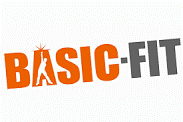 How Basic-Fit, Europe's leading fitness company, made its mark in France - 25/01/2024
How Basic-Fit, Europe's leading fitness company, made its mark in France - 25/01/2024
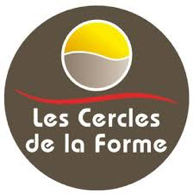 Gymlib and Cercles de la Forme join forces - 25/05/2023
Gymlib and Cercles de la Forme join forces - 25/05/2023
 TrainMe acquires La Pause Baskets to get more employees exercising - 13/02/2023
TrainMe acquires La Pause Baskets to get more employees exercising - 13/02/2023
 Keepcool creates a new gym champion with Neoness - 08/08/2022
Keepcool creates a new gym champion with Neoness - 08/08/2022



